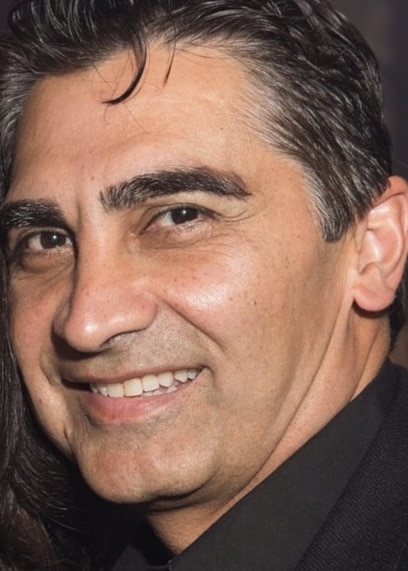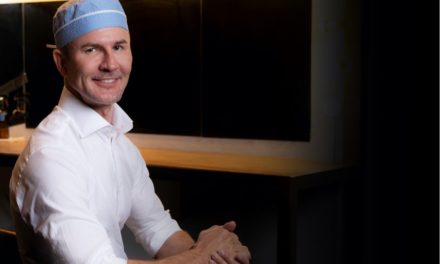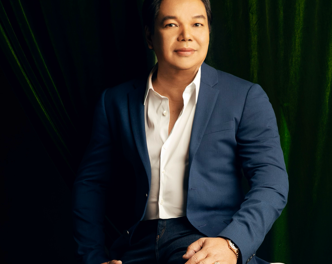Javid Javdani is a successful entrepreneur based in San Diego, California, known for his remarkable journey from pharmacist to successful business owner. Originally from Iran, Javid immigrated to the United States in 1982, bringing with him a spirit of resilience and adaptability that would later define his entrepreneurial career. After earning his Doctor of Pharmacy degree from the University of the Pacific in 1994, Javid spent nearly two decades in healthcare, serving as the Director of Pharmacy at Kindred Healthcare. During this time, he honed skills in management, customer service, and problem-solving, which later proved invaluable in his entrepreneurial ventures.
Driven by a desire to explore new opportunities, Javid transitioned from pharmacy to the food retail sector, purchasing a small grocery store in San Diego. Through his hard work, vision, and dedication to serving the local community, he transformed the business into Balboa Market, a thriving international food market that caters to San Diego’s diverse population. Today, Balboa Market stands as a cultural hub, offering authentic products from around the world and fostering a sense of community among its customers.
Javid’s approach to entrepreneurship is deeply rooted in his commitment to quality, authenticity, and customer engagement. He emphasizes the importance of building relationships, adapting to market trends, and staying true to his values. His journey exemplifies how entrepreneurial success can be achieved through passion, hard work, and a genuine desire to make a positive impact. Javid continues to expand his business while advocating for cultural connection and diversity through food.
What inspired you to make the leap from a successful career in pharmacy to becoming an entrepreneur and business owner?
The decision to shift from pharmacy to entrepreneurship was not something I made overnight. After spending almost two decades in healthcare, I felt a strong desire to create something of my own. As a pharmacist, I learned the importance of precision, customer care, and problem-solving, but I often felt limited in terms of the impact I could make. I saw entrepreneurship as an opportunity to connect more deeply with people and serve my community in a different way. It was also about exploring a passion for food and culture that I had carried with me since my early years as an immigrant. The chance to bring a taste of the world to San Diego was incredibly appealing. When the opportunity to buy a small grocery store presented itself, I realized it was the perfect way to combine my skills with my love for diverse cuisines and cultures.
What do you believe are the most important skills for someone looking to transition into entrepreneurship?
One of the most crucial skills is adaptability. When you transition from a structured career to entrepreneurship, things are far less predictable. In pharmacy, I dealt with regulations, safety protocols, and routines. As an entrepreneur, every day brings a new challenge, whether it’s managing finances, sourcing products, or handling unexpected setbacks. You need to be flexible and open to learning because you’re constantly wearing different hats. Another essential skill is resilience. There will be moments of doubt and frustration, especially in the beginning. It’s easy to feel overwhelmed, but the ability to push through and keep moving forward is what separates successful entrepreneurs from those who give up. Finally, strong communication skills are key. Whether you’re negotiating with suppliers, building a customer base, or leading a team, being able to convey your vision and connect with others is fundamental to success.
How did you handle the fear and uncertainty that came with leaving a stable career for the unknowns of entrepreneurship?
The fear of failure is real, especially when you’re leaving behind something secure. But I believe that fear can be a motivator if you channel it in the right direction. When I decided to buy the grocery store, I asked myself: What’s the worst that could happen? If things didn’t work out, I knew I could return to pharmacy, but I didn’t want to live with the regret of not trying. I focused on the skills I already had, like attention to detail, organization, and customer service, and used them as a foundation. It’s important to remind yourself of the strengths you bring to the table. I also sought advice from mentors and other business owners. Their guidance gave me the confidence to take calculated risks. Fear never really goes away, but when you’re prepared and willing to adapt, it becomes easier to manage.
What were some of the biggest challenges you faced when you first transitioned into running your own business?
One of the biggest challenges was learning to manage all aspects of the business. As a pharmacist, I was used to focusing on my specific area of expertise. But as a business owner, I suddenly had to be involved in everything—inventory management, marketing, customer service, and financial planning. It was overwhelming at times, especially since I had no formal training in these areas. I made mistakes, but each one taught me something valuable. Another challenge was sourcing authentic products for my international market. Ensuring quality and finding reliable suppliers took time and effort. Building a customer base was also difficult. I realized that success doesn’t come overnight; it requires patience, persistence, and the willingness to learn from your setbacks.
How did your experience as a pharmacist contribute to your success as an entrepreneur?
My experience as a pharmacist taught me the importance of precision, attention to detail, and customer service—all of which are crucial in running a successful business. In healthcare, you can’t afford to make mistakes, and that same mindset carried over into how I manage Balboa Market. Whether it’s ensuring that our products are fresh or providing a positive customer experience, I approach each aspect of the business with the same level of care and dedication. My background in pharmacy also taught me how to handle stress and make quick, informed decisions, which has been invaluable in the unpredictable world of entrepreneurship. Additionally, working as a pharmacist helped me develop strong communication skills and the ability to empathize with others—qualities that have helped me build relationships with customers, suppliers, and employees.
What advice would you give to someone who is considering transitioning from a traditional career into entrepreneurship?
First and foremost, believe in yourself and your vision. It’s easy to doubt yourself when you’re stepping into uncharted territory, but if you don’t believe in your own abilities, it will be hard to convince others to believe in you. Secondly, leverage the skills you already have. Every career provides valuable experiences that can be applied to entrepreneurship. Don’t underestimate what you’ve learned in your previous job—it can be the foundation upon which you build your business. Thirdly, don’t be afraid to ask for help. Seek out mentors, attend networking events, and learn from others who have been through the journey. Their insights can save you time, money, and frustration. Lastly, be prepared to put in the work. Entrepreneurship is not a 9-to-5 job; it requires dedication, resilience, and a willingness to learn from both successes and failures. But if you’re willing to embrace the challenges, the rewards can be incredibly fulfilling.
How do you stay motivated and inspired during tough times in your entrepreneurial journey?
Staying motivated during tough times is definitely a challenge, but I always remind myself of why I started this journey in the first place. For me, it’s about creating something meaningful that brings people together and makes a difference in their lives. Seeing customers walk into Balboa Market and find products that remind them of home keeps me going, even on the toughest days. I also stay inspired by surrounding myself with positive influences, whether it’s reading about other entrepreneurs, attending community events, or simply spending time with my family. They remind me of the bigger picture and the impact I want to make. Another thing that keeps me motivated is focusing on the small wins. Entrepreneurship is a marathon, not a sprint, and celebrating those little achievements along the way can help you stay energized and committed to your goals.




